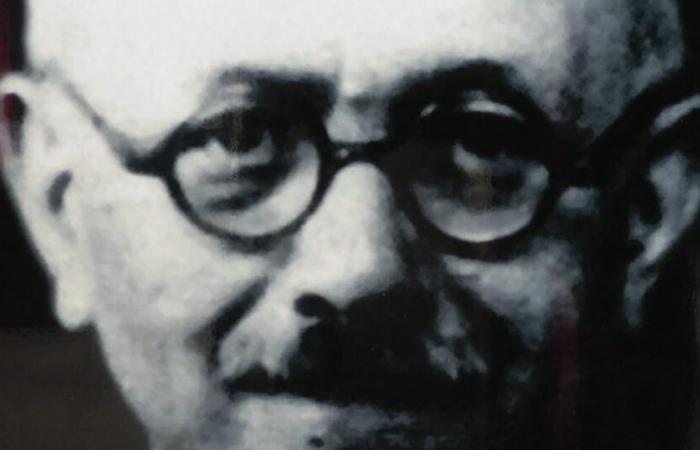
Marc Bloch, emblematic figure of 20th century French historiographye century, will make its entry into the Pantheon. The announcement was made this Saturday, November 23, by President Emmanuel Macron, during a ceremony at the University of Strasbourg, where the historian taught for a long time. This decision honors a man whose life and work have had a profound impact on both the academic world and the history of the French Resistance.
Born in Lyon in 1886 into a non-practicing Jewish family, Marc Bloch grew up in Paris, where his father taught ancient history at the Sorbonne. A brilliant student, he joined the École Normale Supérieure and obtained his aggregation in history and geography. His academic career took him first to Strasbourg, then to the Sorbonne in 1936, where he established himself as one of the most innovative historians of his time.
It was in 1929 that Marc Bloch, with his colleague Lucien Febvre, founded the journal “Annals of Economic and Social History”, which would become the spearhead of a new historical approach. This school of thought, known as the Annales school, revolutionized the discipline by broadening the field of history to include sociology, geography, psychology and economics. “He is the founder of the history of mentalities, beliefs, ways of thinking,” historian Julien Théry summarizes to AFP.
Marc Bloch's work is not limited to his academic work. A convinced patriot, he enlisted as a soldier in both world wars. In 1939, at the age of 53, father of six children and despite fragile health, he asked to be mobilized, becoming, in his own words, “the oldest captain in the French army”.
The defeat of 1940 pushed him to write The Strange Defeat an uncompromising work on the collapse of France in the face of Nazi Germany. Published posthumously, this book remains one of his most famous, offering an analysis of the reasons for the French debacle.
“I cherished the truth”
Excluded from teaching by Vichy's anti-Semitic laws, Marc Bloch chose to join the Resistance. Under various pseudonyms, he actively participated in the creation of Liberation Committees in the Lyon region. Arrested on March 8, 1944, he was imprisoned and tortured in Montluc prison.
Even in these extreme conditions, Marc Bloch continues to teach, sharing his knowledge with his fellow prisoners. “If I escape, I will resume my classes,” he confided to them. Unfortunately, he won't get the chance. On June 16, 1944, Marc Bloch was shot by the Gestapo with 29 other resistance fighters in a field near Lyon, in Saint-Didier-de-Formans (Ain).
The pantheonization of Marc Bloch honors not only the historian, but also the committed man who knew how to put his convictions at the service of his country until the ultimate sacrifice. His motto, “Dilexit veritatem” (“I have cherished the truth”), engraved on his tomb, sums up the essence of his life and work. By entering the Pantheon, Marc Bloch joins the great figures who have shaped French history and thought.
France





